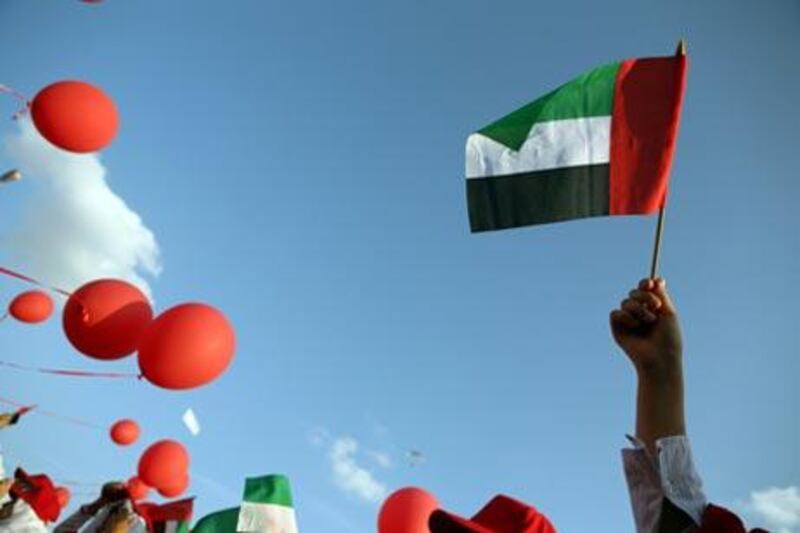ABU DHABI // A vision for the state of the nation on its 50th anniversary, in 2021, has been outlined by the Federal Cabinet, chaired by Sheikh Mohammed bin Rashid in his capacity as Prime Minister of the UAE. In its drive to become "one of the best countries in the world", the UAE yesterday adopted a new national declaration centred on heritage, federalisation, Emiratisation and sustainable development that will carry the country to 2021.
The declaration, labelled the UAE National Historic Charter, sets the country's direction for the next 11 years, up to its Golden Jubilee. The full text of the declaration was released late last night by WAM, the state news agency. Not yet clear is whether the Charter contains more details, and whether those might be made public by the Ministry of Cabinet Affairs. In the first component of the text, Sheikh Mohammed highlighted the UAE's "moderate Islamic values and deep-rooted heritage to build a vibrant and well-knit society".
A similar sentiment is restated later: "The UAE's distinct culture will remain founded on progressive and moderate Islamic values." The Charter emphasises the importance of the Arabic language in the nation's future. "Arabic will re-emerge as a dynamic and vibrant language, expressed everywhere in speech and writing as a living symbol of the nation's progressive Arab-Islamic values," according to the text.
In the second section of the Charter a commitment is made to close the social gap among Emiratis. "Our culture of equity and our spirit of solidarity will spur us on to close the gap between citizens' standards of living. Utilities and services will be provided across the territory such that no region remains isolated or becomes marginalised. World-class transport services and infrastructure will boost development and bridge communities."
The third section of the Charter calls for a shift to a knowledge-based economy over the next 11 years, "within an entrepreneurial environment that harnesses the talent and creativity of Emiratis. A new class of entrepreneurs will be nurtured and supported with the help of practical programmes such as start-up incubators. "In a national effort, the UAE will cultivate a healthy, risk-taking culture where hard work, boldness and innovation are rightfully rewarded."
In the final section of the Charter, a commitment is made to "intensify the fight against lifestyle diseases" and highlights a commitment to "offering an advanced welfare system to allow all Emiratis to overcome adversity and contribute positively to society". The Charter is solely focused on Emiratis, with no reference to expatriates, around 85 per cent of the population. It follows on the three-year Federal Government Strategy spearheaded by Sheikh Mohammed in 2007.
As he described it then, the plan "highlights the overall direction of the UAE Government Strategy for the next three years, and heralds a new phase of governance". Since then, Abu Dhabi and Dubai have separately created economically driven vision plans for their respective emirates. Sheikh Mohammed said yesterday there would be no cabinet changes due to ministers' good performances, WAM said.
@Email:myoussef@thenational.ae






